Words by Anna Turns
Perhaps you want to find a way to support the rewilding of marine habitats or simply appreciate the sea for all the benefits it offers us? Maybe you’re concerned about the impact of plastic pollution or worried about the increasing threat of global warming on the sea? There are so many uplifting ways to get involved with ocean conservation charities, from collaborating on projects, to becoming a member, to shopping online for gifts for friends and family, to making a direct donation to support their work. Here we highlight some of the most creative, hands-on and impactful initiatives that are not only rewarding to you or your giftee, but are also good for our blue planet, now and in the future.
FOR CLEANER BEACHES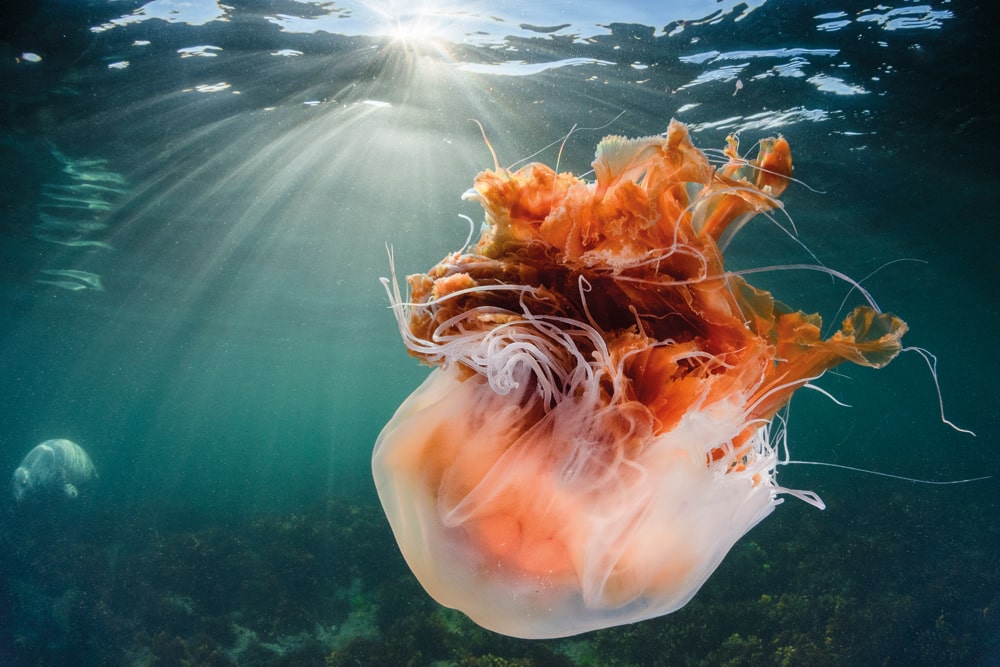
As a Beachwatch volunteer, you can help add valuable information to the Marine Conservation Society’s database of beach litter surveys carried out over the past 25 years. Every bottle top, cotton bud or plastic fragment found along a 100m stretch of beach is recorded and reported. Beachgoers can also report sightings of different seaweeds, jellyfish, turtles or basking sharks through the MCS sightings programme to help scientists understand the impacts of climate on these species.
Find out more: Join, shop and donate at mcsuk.org.
FOR NET-FREE SEAS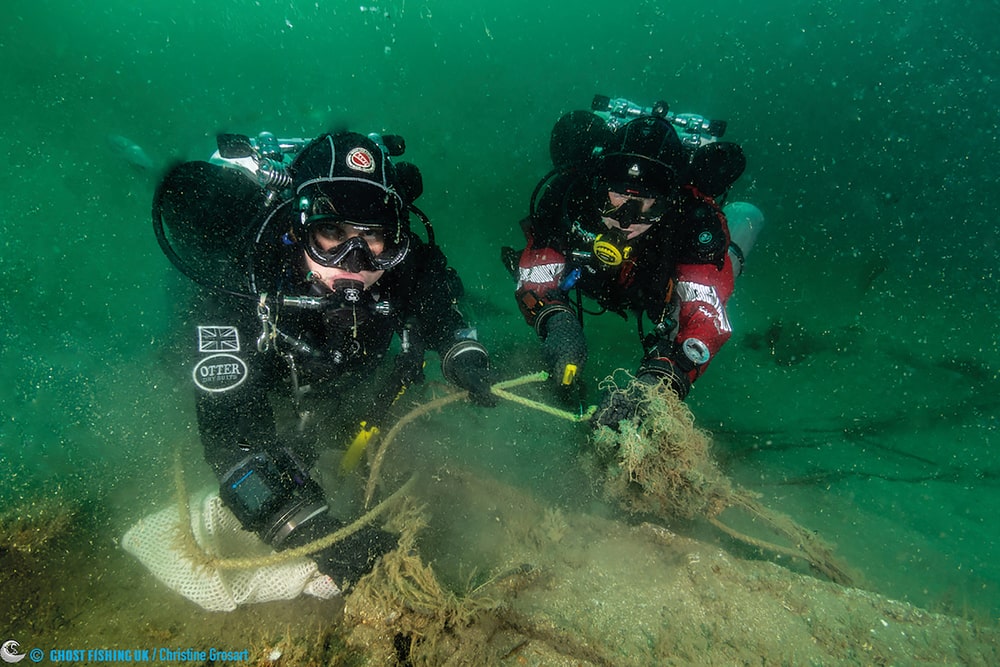
Fishing gear that has been abandoned, lost or discarded poses a huge entanglement hazard to marine life, from fish to shellfish to cetaceans. Since 2015, more than 70 scuba-diving volunteers have been expertly trained to safely remove this ghost fishing gear from wrecks, reefs and the seabed. Ghost Fishing UK works closely with the fishing industry and aims to recycle recovered nets wherever possible. In one dive near Plymouth, the team rescued 57 spider crabs from a 100m-long lost gill net from Hillsea Point, which then got sent away to be recycled into socks.
Find out more: Report a ghost net, shop and donate at ghostfishing.co.uk.
FOR OCEAN DISCOVERY 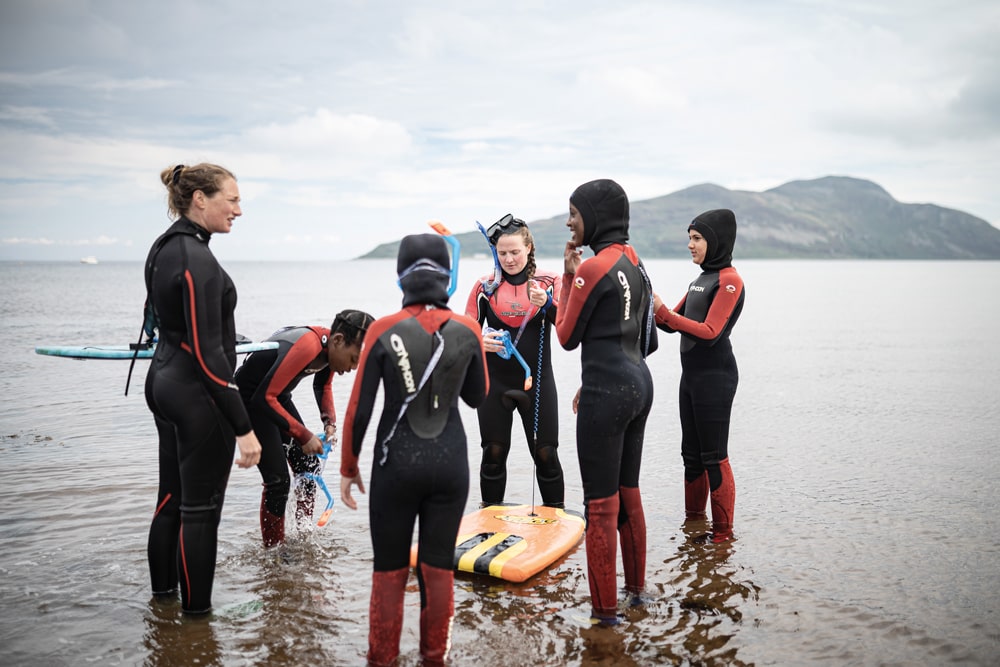
Ocean advocate Dr Cal Major’s new charity Seaful reconnects people to the ocean to help drive better stewardship of the marine environment. Through Seaful’s Vitamin Sea Project, Cal provides in-person experiences of blue spaces through activities such as paddleboarding, sailing and snorkelling, in particular working with children, one in five of whom in the UK have never been to the sea. Mindfulness and conservation education are incorporated into the sessions, and participants are given plenty of time to simply experience the water in a way that is meaningful to them individually. The charity is developing an ocean curriculum for primary schools and collaborating with Falmouth University’s Marine Natural History Photography degree course and other filmmakers to create a series of educational and inspiring films.
Find out more: Get involved and donate at seaful.org.uk.
FOR CLEANER SEAS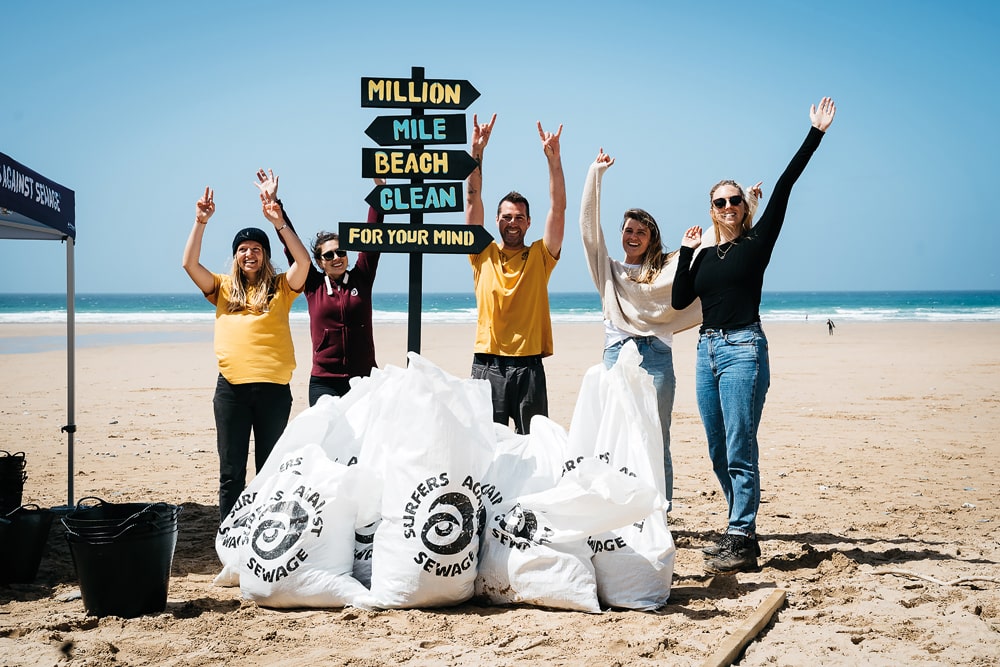
Surfers Against Sewage isn’t just about sewage and it’s also not just for surfers. Led by chief executive Hugo Tagholm, an advocate for healthy oceans, SAS campaigns against water pollution and single-use plastic, with an army of ocean activists. From its headquarters in Cornwall, SAS also runs a schools programme to educate the next generation about the important role that marine ecosystems play. Join a beach clean or find your nearest plastic-free community initiative.
Find out more: Join, shop and donate at sas.org.uk.
FOR PLASTIC CLEAR-UPS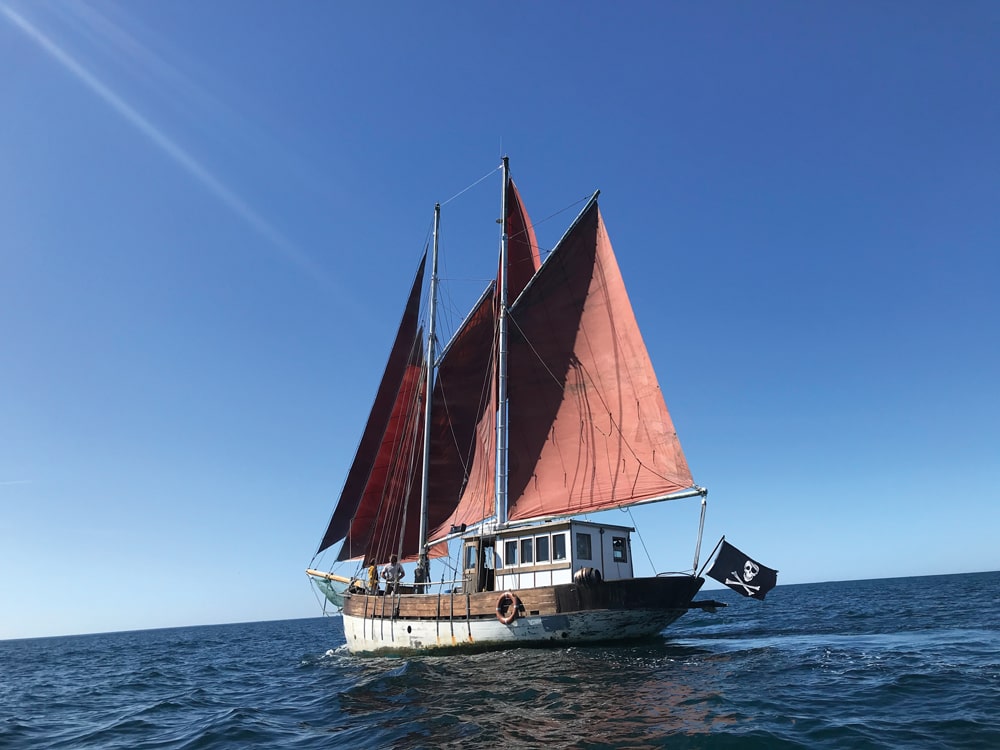
On board 113-year-old schooner Annette, and with a fleet of smaller floating modes of transport, the Clean Ocean Sailing crew of volunteers gather plastic debris as they sail. Sign up for week-long, weekend and day expeditions around the South West coast – novice sailors welcome. Rubbish is recycled if possible; some is moulded by Cornish company Odyssey Innovation into kayaks that can be used to access remote coves during litter picks: proof that a more circular system is possible.
Find out more: Book a trip, become a patron or donate at cleanoceansailing.com.
FOR KIDS’ WELLBEING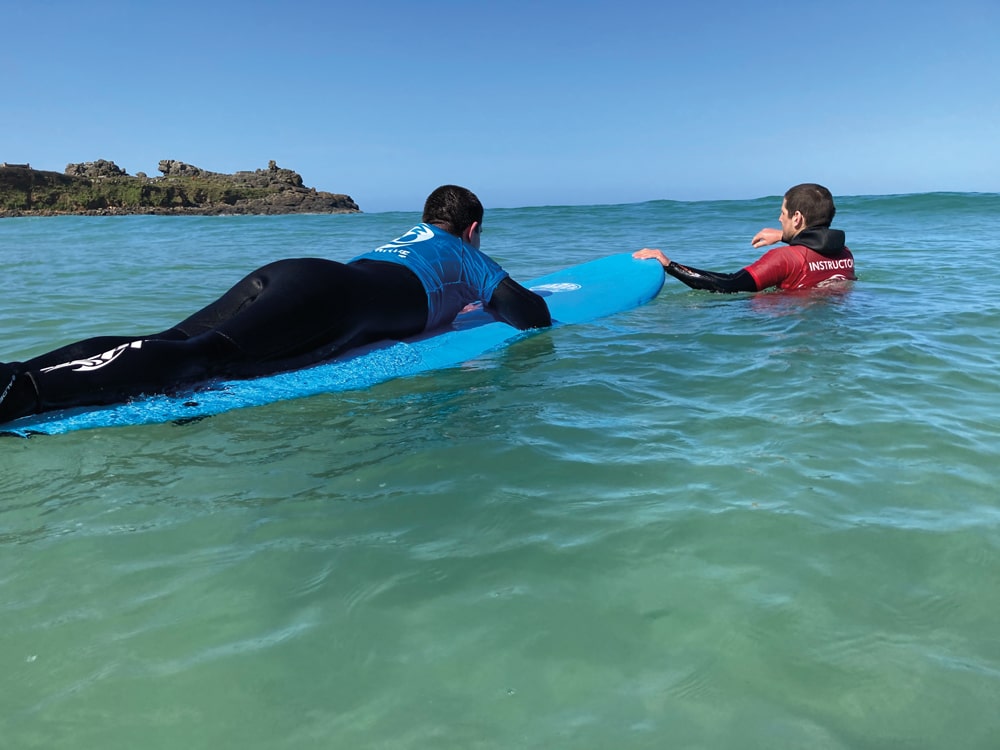
The Wave Project has trained 6,277 volunteers at 12 locations around the UK as surf mentors who participate in free surf therapy sessions, mentoring children one-to-one. Young people aged 8-21 with a range of physical and mental health issues can benefit in specialised courses of six weekly sessions in the sea. Once complete, young people can join The Wave Project’s surf club, which provides access to regular surf sessions. Plans are afoot to build a world-first beach school in Newquay, Cornwall, for vulnerable children who struggle to engage with traditional school lessons and are at risk of permanent exclusion.
Find out more: Make a referral, shop and donate at waveproject.co.uk.
FOR POLLUTION SOLUTIONS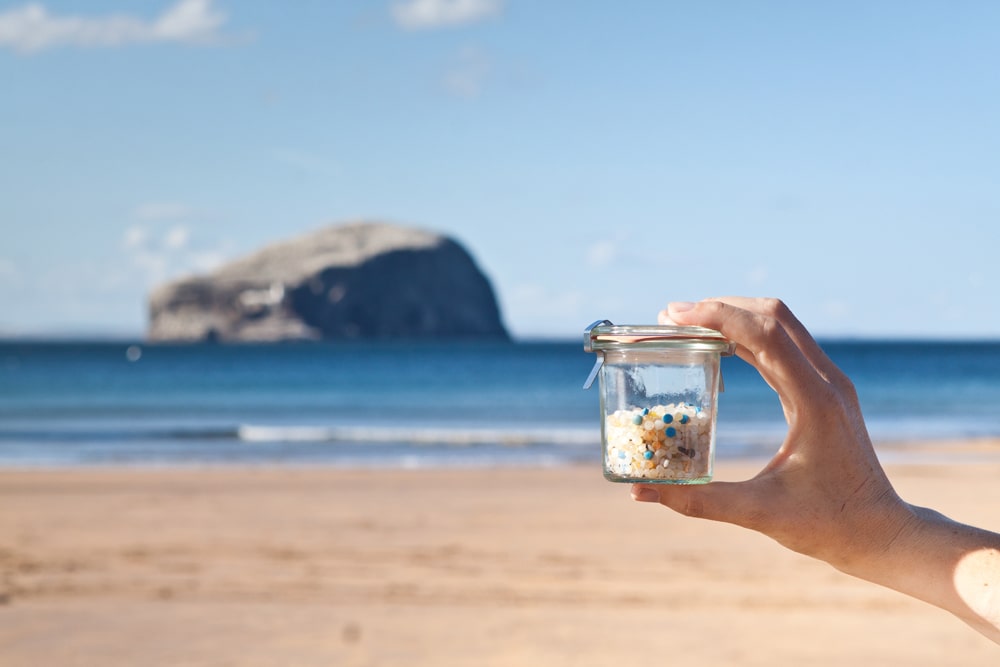
Scotland-based environmental charity Fidra works to reduce plastic waste and chemical pollution in our seas and beaches. From industrial plastic pellets or nurdles used in manufacturing that get released into waterways to microplastics released from Astroturf, Fidra works with industry, governments and the public to implement sustainable solutions. Fidra also aims to highlight the hidden toxicity of chemicals in and on waste that cause harm to wildlife, the environment and us. Take part in Fidra’s Great Nurdle Hunt or find out how to buy products that don’t contain toxics such as bisphenols, flame retardants or PFAS forever chemicals.
Find out more: Get involved and donate at fidra.org.uk.
FOR GREENER LIVING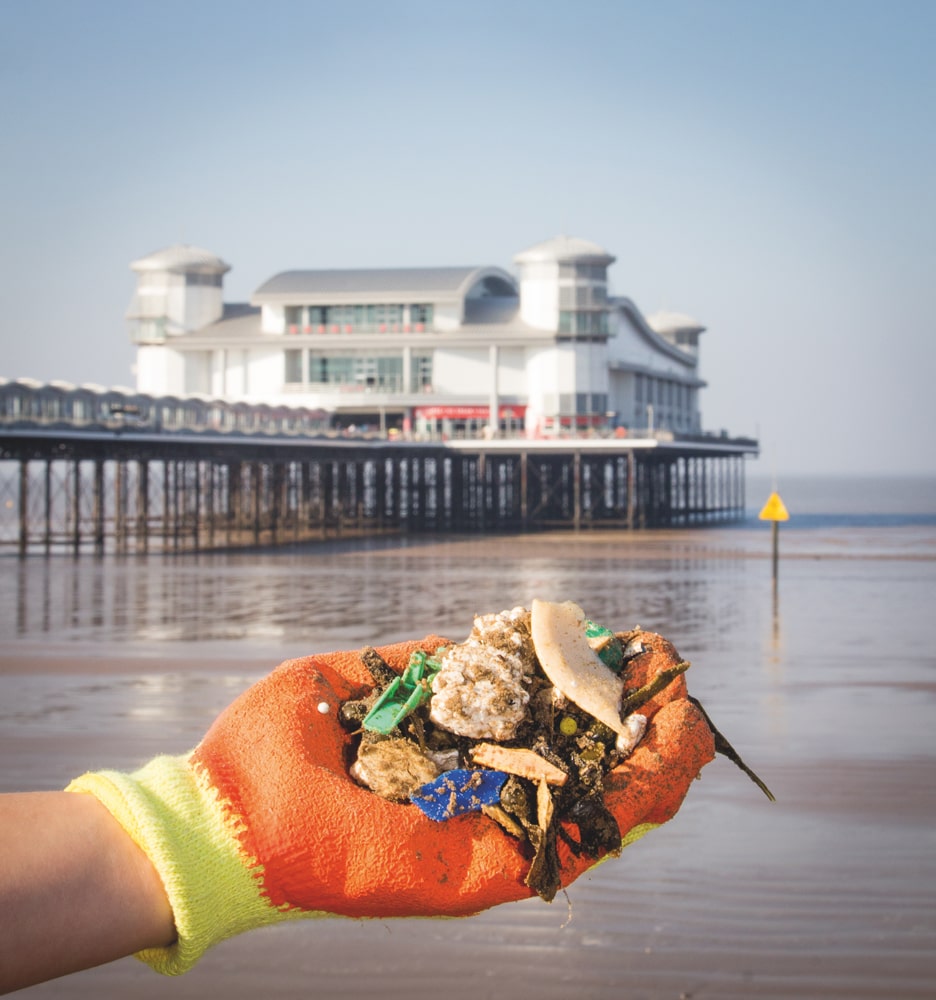
Bristol-based social enterprise City to Sea aims to prevent pollution by joining the dots between the actions and decisions we take in towns and cities and the detrimental consequences our choices and policies can have on the marine environment. Founder Natalie Fée has been instrumental in campaigns to ban plastic cotton bud sticks, single-use cutlery and harmful single-use period products that won’t ever biodegrade. Through Plastic-Free Periods, this NGO lobbies government, works with the NHS, trains teachers, influences retailers and educates the public about organic disposables and reusable alternatives. Discover thousands of places where you can eat, drink and shop without pointless packaging via the free Refill app.
Find out more: Collaborate, shop and donate at citytosea.org.uk.
FOR MARINE MAMMAL RESCUE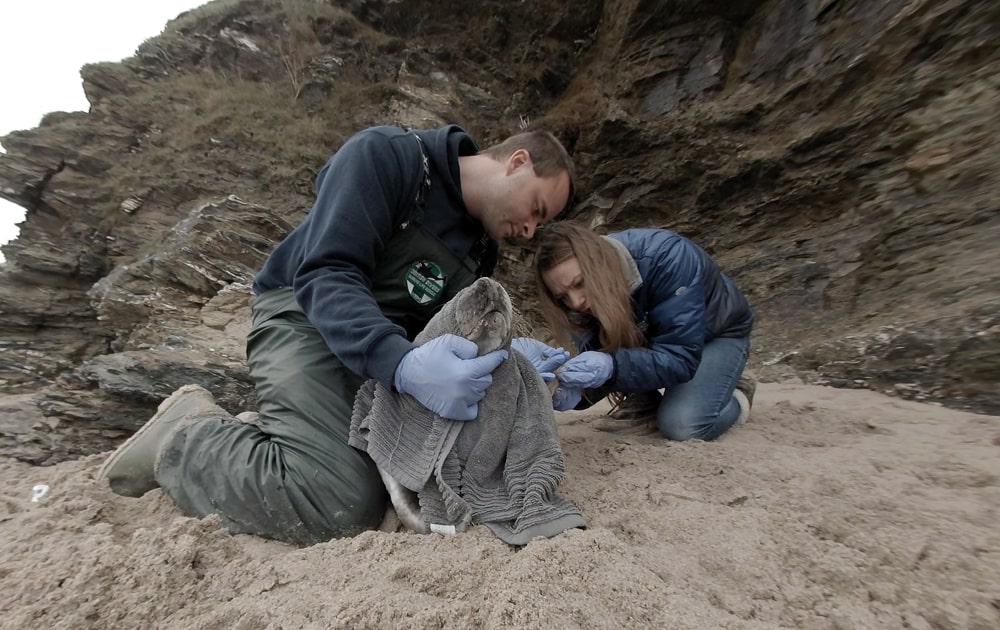
A team of 2,500 volunteers for British Divers Marine Life Rescue (BDMLR) are trained to assist stranded seals, dolphins, porpoises and occasionally whales. Hands-on, one-day training courses for volunteers are run every year nationwide – diving qualifications are not required. Some advanced medics are trained to become part of the on-call specialist whale disentanglement team. Thanks to fundraising efforts, a new custom-built seal pup hospital recently opened in Cornwall, one of the busiest regions for such rescues. In 2020, more than 90% of 2,287 call-outs were for seals, some of which simply needed monitoring from a distance while others required intervention. More seal casualties are expected with the increase of storms as a result of the climate crisis. If you spot a marine mammal in distress, please call the charity’s hotline on 01825 765546.
Find out more: Join, shop and donate at bdmlr.org.uk.
FOR BUDDING BIOLOGISTS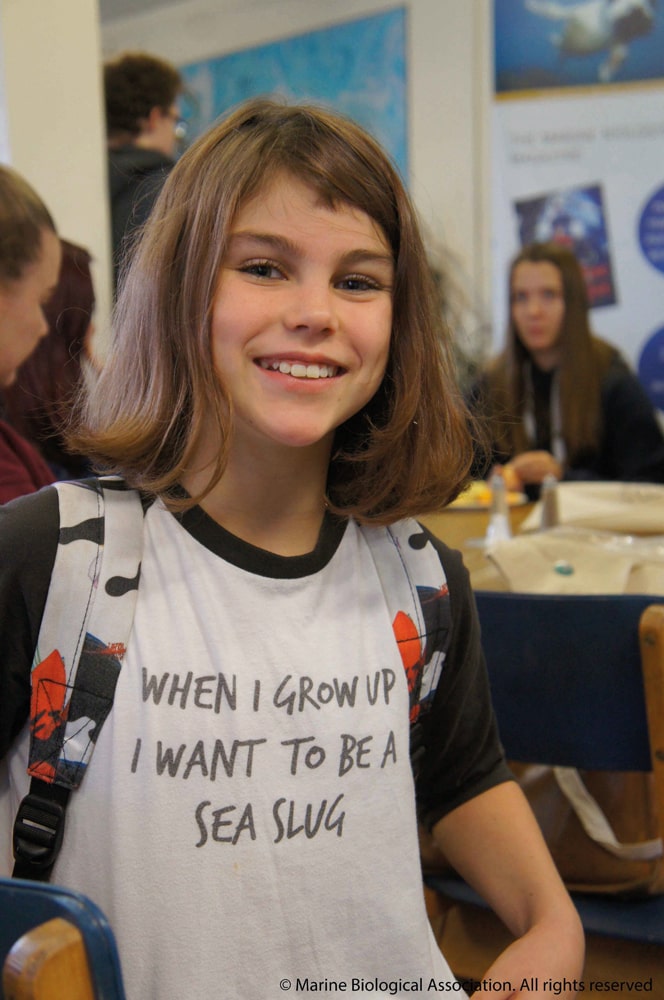
To instil a love for the ocean in little ones, sign them up to the Marine Biological Association for a year’s membership for just £15. Funds support valuable marine research and wannabe marine biologists can take part in the annual Young Marine Biologist summit for under-18s. Perks include online subscription to The Marine Biologist magazine, access to training and survey days, plus free entry to the National Marine Aquarium in Plymouth.
Find out more: Buy membership at mba.ac.uk/young-marine-biologist-membership
Find out about the communities driving Plastic-free Cornwall or discover more marine conservation activites around the coast-line.



















